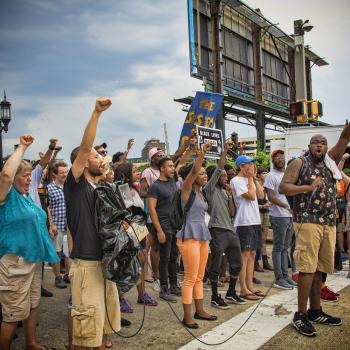 Tim Challies is author of Sexual Detox and The Discipline of Spiritual Temperament, editor of Discerning Reader and proprietor of the very popular blog, Challies.com.
Tim Challies is author of Sexual Detox and The Discipline of Spiritual Temperament, editor of Discerning Reader and proprietor of the very popular blog, Challies.com.
The book that most deeply affected my faith life in the past ten years is John MacArthur's Ashamed of the Gospel. It's not the best book I've read (though it does have plenty to commend it), but I can't think of another book that rocked my world in quite the way this one did. At the time I read it I was a member of exactly the kind of church MacArthur was describing, and it was as if he was going to the Bible and showing how much the church was dishonoring God, as if I myself was falling for the allure of pragmatism. That book gave me a new respect for the primacy of Scripture in the Christian life and for the local church. Not long after I read that book I realized that God was calling me to find a church where God's Word was truly honored.
I don't know that there is any book other than the Bible that Christians should read. I would rather emphasize that Christians should at least read some books. I would place less emphasis on any particular book and encourage people instead to read a few really good books. I would encourage any Christian to find a few areas that are of particular interest or where there is a particular weakness and find a couple of good books that will address those issues head-on.
But if you're dying for a suggestion, Metaxas' biography of Bonhoeffer is one that is well worth the effort!
 Timothy Dalrymple is Associate Director of Content for Patheos, and manager of the Evangelical Portal.
Timothy Dalrymple is Associate Director of Content for Patheos, and manager of the Evangelical Portal.
Apart from the Bible, which continues to be the central and authoritative repository of stories and parables and wisdom and truth that guides, nourishes, and shapes my life, the single most transformative book I have read in the past ten years, on a practical as well as a spiritual level, is Søren Kierkegaard's Practice in Christianity.
Many Christians who receive a university education are familiar with books from Kierkegaard's earlier, more philosophical, and (strategically) less overtly Christian phase, such as Either/Or, Fear and Trembling (probably the most widely read and renowned of Kierkegaard's works), and Philosophical Fragments. These represent only a few years in Kierkegaard's career as an author, and a small part of the architecture of the authorship that was intended to bring the reader, steeped in worldly values of comfort and beauty, pleasure, and consumerism, before an honest confrontation with what it really means to become a Christian in faith.
In other words, the most commonly read of Kierkegaard's works were meant to be preparatory for the later works, dynamiting the false foundations of a worldly-compromised faith, clearing away all the false senses of self and faith and God that intrude between the individual and God. The issue of becoming a Christian, of dying with Christ and finding life in him, is set forth most clearly in Concluding Unscientific Postscript to ‘Philosophical Fragments'. It is in the works following the Postscript (to simplify a little) that Kierkegaard describes not only what it means to become a Christian in faith (a decision made over and over again), but also to be a Christian in the imitation of Christ and in opposition to the world.
Practice in Christianity transformed my life in practical ways because it provoked a process of inquiry and reflection that led to a master's thesis in 2002 and a doctoral dissertation in 2009. On a more spiritual level, it was precisely what I had been looking for. Many western Christians today, especially in the younger generations, find that something vital is missing from the vision of the Christian life that has been imparted to them. Many who were raised in a comfortable suburban Christianity felt that Christ had not merely saved them but called them to a life that would be dramatically different than their lives had been before, a life radically counter to the values and mores of the culture around them. Some have found that more radical Christian vision in overseas missionary work, in serving the poor, in forming communities of intentional faith and witness in urban neighborhoods, or in confronting fallen thought and culture with apologetics and art. None of these things are wrong in themselves. All are worthwhile and sorely needed. Yet what I sought -- and found in Practice in Christianity -- is a vision for the whole transformation of every individual who daily, hourly, moment-by-moment seeks to walk in the imitation of Christ. My own sense of what has been missing in American Christianity is precisely this: the call not merely to believe in Christ or even act on Christ's behalf, but the call to become Christ from the inside out through acts of constant surrender, renunciation, and obedience.
Kierkegaard always viewed himself as a corrective to a centuries-long drift of the Christian world away from the rigor and self-sacrifice of the first Christians and toward lives of languid self-indulgence and convenient compromise with the world. At some point, he argued, we came to believe that "first order" Christians are called to suffering, persecution, and potentially martyrdom in the face of a world that kills Christ wherever he appears, even when he appears in those who imitate him -- while "second order" Christians should merely confess that they make no real effort to live the life of Christ and take refuge in grace. There is, Kierkegaard came to believe late in life, no second order of Christians. One is either a follower of Christ, or one is not. This does not necessarily mean that the comfortable and the compromised are unsaved; it merely means that they do not merit the honorific of "Christian," and should be encouraged to venture out into the pursuit of Christ through imitation. It is through striving to live the life of Christ that we are shaped into the likeness of Christ, and through imitating Christ we come to know him and know God in and through him.
Although few Christians today read Practice in Christianity, I will choose another book to answer the second question: Michael Buckley's At the Origins of Modern Atheism. Buckley, a Jesuit scholar and professor, has the kind of fine-grained vision of the whole canopy of western theological and philosophical traditions that has all but vanished from the universities today. The path toward atheism began, he argues, when Christians suggested -- in order to defeat skeptics at their own game -- that they could, and must, provide a philosophical demonstration of the existence of God and the revelatory status of scripture before there could be any consideration of the God who reveals Himself within scripture.
Descartes, among others, proposed that the essential elements of Christian thought could be reconstructed essentially without the aid of the Holy Spirit, the witness of the church, and God's self-revelation in Christ; all that is required to demonstrate the truth of Christianity, he argued, is objective rationality reflecting upon its conditions and experience. Proving this proposition became the (hubristic) great task of modern philosophers, and the inability to find any such unassailable proof, when it was made to appear that this was the lynchpin upon which responsible assent to Christian faith must rest, has proven devastating beyond measure to western Christianity. If responsible rationality means believing only that which cannot be doubted, and it is not possible to construct an indubitable series of proofs for the whole of Christian belief, then our faith is an abdication of our responsibilities as rational beings.
Anyone who would understand the rise of skepticism, agnosticism, and atheism in the modern west -- and every Christian who seeks to comprehend contemporary western culture should desire to understand these things -- should purchase Michael Buckley's book today and read it as soon as it arrives upon the doorstep. Christians were wrong to attempt to answer philosophically what were essentially theological questions, and wrong to abandon the witness and revelation that are intrinsic to its own tradition in the face of life's most fundamental problems.
The Christian witness does not begin with a philosophy textbook; it begins with the God who encounters us anew every day and every moment in the person of Jesus Christ. Buckley would agree with the Anselmian dictum of fides quaerens intellectum, that philosophy and apologetics unfold the content of what is believed but do not form the foundation upon which our beliefs depend. The foundation of our belief is Christ, who is the presence and the knowledge and the power of God among us, and Christian thought is resting on, a living in, and a search into the truth of Christ the Word of God.




